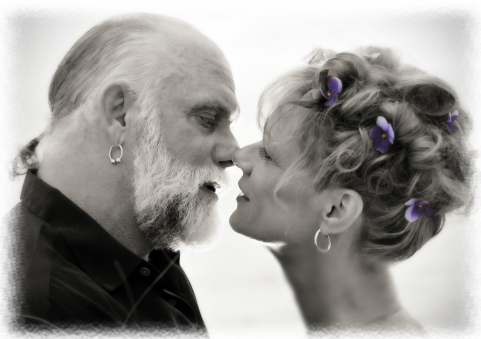|
|---|
Tuesday, January 12, 2010
Brig Upon the Water, 1856 by Gustave Le Grey
I come across an anthology of Russian short stories from the 2oth century. I come across a book of translated poems by Giuseppe Ungaretti, whom I've never heard of before. I pick up Alan Hollinghurst's novel, The Line of Beauty, and I am curious to read it.
Perhaps I will check these books out.
While my mind plots out the future with relentless determination, my body craves moments like these, moments of abandon, moments of self-forgetfulness . . .
I feel like a naughty or undisciplined child when I'm not following my mental agenda--I "look the other way" and allow myself to just explore and be surprised by ephemera.
Whatever catches my fancy in this moment is my agenda; but I am self-divided. On the one hand, I long to embrace the moment. My love of reading is a testament to this desire and this longing.
But my personality continually pulls me out of these moments. There is always something on my mind, an endless monologue going on, and I rarely allow myself to become engrossed, absorbed, in experience.
Reading The Sheltering Sky by Paul Bowles, for example, I often thought about what I would read next . . .
Our minds seem fixated on what's next . . .
I also have a cold right now, and I'm thinking about how much better things will be after my cold is gone. This state of mind, in which I'm always anticipating the future, contributes to my restlessness, to my ongoing ambitions in work, and more and more the task of living becomes a passage from one set of circumstances to another.
I'm preoccupied with moving from point A to point B. Once I get to point B, I become preoccupied with point C, whatever that may be.
Consumer culture seems to feed on this mania. The acquisition of any material object leads to the desire for another object. But in life, the object becomes our set of circumstances, and we strive to alter them, to improve our lives until we are satisfied.
I am always in transit to where I would like to be, and never just where I am.
I shouldn't say "never". When I write these essays, I am fully present. I am at home with my emotions and thoughts. My mind and body are strangely united. Writing is closer to an act of prayer than anything I've ever done before. I commune with my deepest thoughts and feelings, and try to give them speech. I try to let my body articulate its trials.
There is something deeply troubling me right now--it seems I can't be happy. I don't think one can be happy "in transit".
I refer to my age a lot. When I say "I'm thirty years old," it gives me a certain vantage point to speak from. Perhaps you've been thirty before, or maybe you have ten years to go, whatever the case, thirty is a defining age for me. It makes me think harder than when I was twenty-nine. I'm beginning to ask myself questions like, "How do I really want to live my life?"
I feel like a wanderer. Every project I take on leads me into a sort of Siberian landscape--a blinding whiteness in which I can't see ahead or behind me--I go deeper into this white territory, unsure if I'm committing too much to a certain route, if perhaps I should abandon this route and find another, I don't know, but I keep walking into the white emptiness, the giant plane--
You would think that my projects would take me home, but they don't. They lead me out. They multiply me because I am caught in a desire to do more always.
So projects, while fulfilling on some level, ultimately just feed me more work to occupy my hours, and then there is this thing, beauty, which I am obsessed with.
Beauty is but a general term for my fantasies--I chase after something like a perfect world. It is beautiful to me, aesthetically, idealistically, but it also promises a sort of completion, like a spiritual completion, if only I could attain it.
My pursuit of the line of beauty has left me in a conflicted state. Beauty leads me into another Siberia, a Siberia of fantasy, and I am no closer to home, I am farther.
And then there is the sense that I'm engaging in a grand self-deception. I will never achieve my fantasy, the beauty I imagine is unattainable, so why do I contemplate this ideal world during so many of my waking hours?
Having tried the different ways to self-completion, or self-fulfillment, I fail. Imagined beauty fails me and so does my incessant activity. If it were possible that a relationship with a woman could save me, then I would pursue it--God knows I have tried--I am trying--I am in a relationship right now--her heart is more delicate and trusting and charitable than any woman I've ever been with---but I am still--unsatisfied--it is not her--I do not blame her.
In truth, there is no one to blame in life. I tried blaming my father. He seemed like the perfect culprit for my problems. But alas, there is no one except ourselves. . .
We have ourselves. But to blame yourself for being unhappy is wrong too. To say that I am unhappy is also wrong--
Unhappiness is a broad generalization for an often-changing state of mind. I'm not confused either, as some readers have suggested--
I'm innocent. It's a state of conflict, of contradiction, it's being human. Being unable to be here (with God or Nothingness), always seeking after that enigma on the edge of your mind. For me, it is beauty, an ideal . . .
The ideal world is especially seductive. I have a powerful imagination, and I can concoct convincing pictures in my mind, fantasies, alternative realities. The trouble is bringing the present moment up to speed with the picture in my head, an impossible feat, because fantasy and reality never cross streams.
And so I dwell in the uncomfortable middle--pulled forward by visions--and thrown backward by reality. Remember: I choose to have it this way. Which is the greatest conundrum of all.
Labels: Alan Hollinghurst, beauty, essay, self knowledge
0 Comments:
Subscribe to:
Post Comments (Atom)















